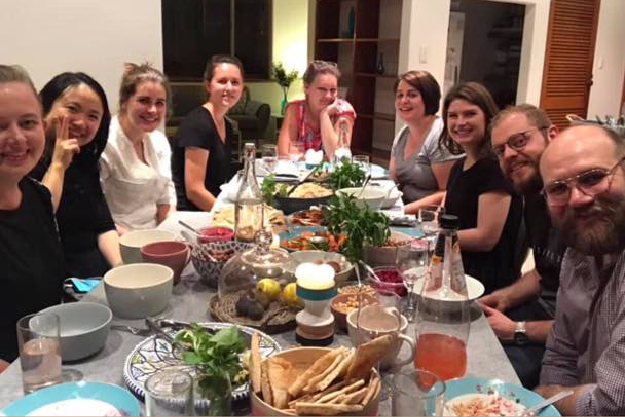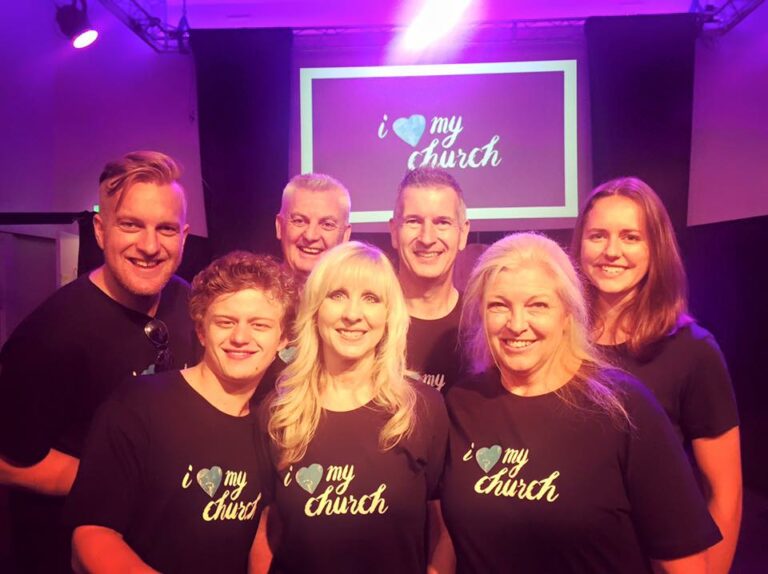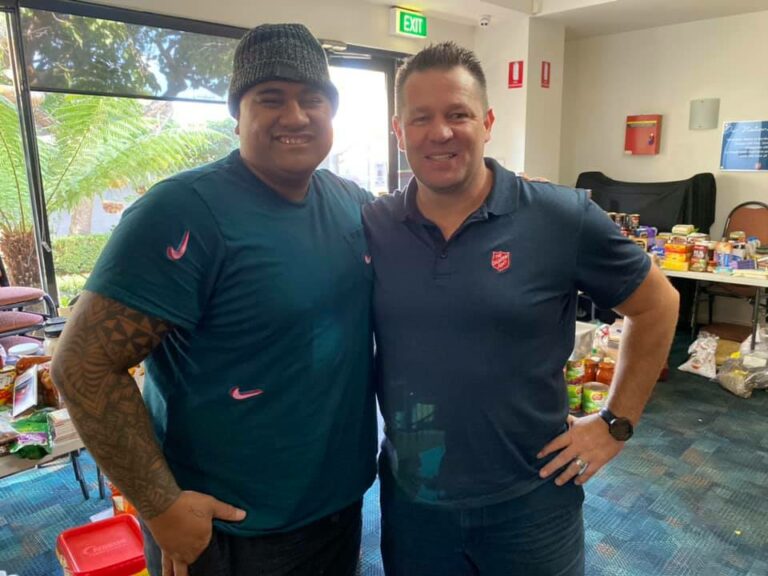Here’s an excerpt from our interview with C3, whose leaders Chris and Vicki Matthews and their team, build their health and vitality through initiatives such as this.
Read the conversation below.
NCLS: You mentioned dinner parties as one activity you use to connect with people both inside and outside church. Was there anything you wanted to share about the dinner parties in particular?
VM: Dinner parties is a strategy that we started at the beginning of last year, so this is the second year of dinner parties.
They’ve come out of what would be your home groups or connect groups. Different churches call them different things, cell groups, connect groups, home groups. Essentially it’s a home group, but we call them dinner parties because they’re at the dinner table. The reason that we’ve done that and we’ve made it a church-wide thing is because we very much value hospitality culture. There’s nothing more relaxing and easy to fit into, than sitting around a dinner table with people.
If you sit around in a lounge room, as we’re sitting now, with a group of people, it’s very easy just to look at one another or for someone to throw out a question, and the person that speaks first always speaks, but others don’t want to say anything. It can be good, but it can also create angst for some people. So we’d done all that in the past, and there’s nothing wrong with that. That still works.
But we were looking for a new thing, a new way forward and a new way to include other people into that group. Not only people that are coming to church on Sunday, but sometimes friends who’ve never been to church. To ask them to dinner is a lot easier than asking them to come to a home group that’s obviously church connected.
We were really looking for ways to connect those people in, so once a fortnight we have a dinner party, and it’s in various people’s homes, literally in their homes at their dinner table. There is a structure in a group. There are four leaders in a group. There’s one that runs the discussion, so we have a small part of that dinner party that has discussion involved in it, but the whole idea of dinner party is not so much to have a Biblical discussion, although that is in there. It’s coming together as a community. It’s coming together and having fun. It’s doing life together.
It’s having the opportunity that you might not have on Sunday necessarily to speak to everybody, to find out where you’re at, how life’s going for you. Is there anything I can do for you? Can I help you? Can I pray with you? It’s allowing for more of that discussion to happen, but it also has the Christ-centred focus where, once we’ve had the meal, we do open up a discussion. It’s usually fairly simple. It’s not too in-depth, which is completely different from what we have done at various times.
It might be just a very simple question about, before you were a Christian, how did you see God? Who was God to you? It might be very broad like that. People say all kinds of interesting things. Out of that will often come other questions and other answers and other opportunities to bring in points of interest, but it’s quite open.
Again through our systems, the person who’s hosting the dinner party will send out a list and say, for example, this week our dinner party group is having Mexican. So it’ll say, hi, guys, really looking forward to having you on Wednesday night. We’re doing Mexican this week. We’re looking forward to hosting you. We’ll send out a list tomorrow of the foods that are required. Then you tick what you want to bring. So the list is on there. So you say, I’ll bring salsa, I’ll bring this, whatever it is, whatever’s on there. So the person that’s hosting it doesn’t end up paying for the whole meal, but we all contribute to the meal and then it’s put in the middle of the table and we share a meal together.
They’re working really well. It’s just a whole new way of bringing life into the church, but in a smaller setting, because it is harder on a Sunday when you’ve got 100-plus people. You can’t connect with everybody. Not that we can in a dinner party, but it allows people to connect.
And then the people that are involved in the leadership group of those dinner parties also oversee those people. So if you’re in my group, during the week I might be intentionally texting you and saying, hi, I was going to spend some time in prayer this afternoon. Is there anything you’d like me to pray for you about? You might say, yes. And I’ll say, okay, no worries, I hope you’re feeling better this week, I know you had a bit of a cold. It’s just connection points.
So in that way, there’s smaller groups looking after smaller groups of people, so it’s not all coming from leadership. We’re empowering others to look after others.













